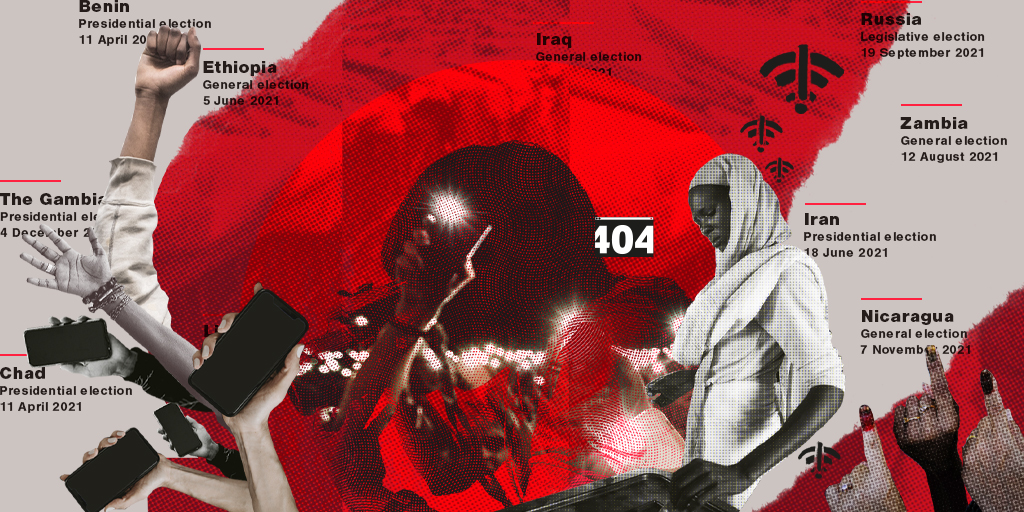The past few years have seen the rise of a trend that is eroding democracy: internet shutdowns during elections. These intentional disruptions, usually ordered by a government actor, vary from total blackouts to targeting specific networks or services like WhatsApp and Twitter. What all election shutdowns have in common is that they violate basic fundamental rights like freedom of expression, undermine election fairness, and weaken people’s trust in the electoral process.
To promote democracy and accountability, Access Now is releasing a new Internet shutdowns and elections handbook: A guide for election observers, embassies, activists, and journalists to help election observers, journalists, diplomatic missions, and human rights activists navigate these turbulent scenarios
Our goal is to use the experience and resources of the #KeepItOn coalition to facilitate the understanding of internet shutdowns in the context of elections, and support people in preparing for and responding to partial or total shutdowns.
Since the beginning of the year, every month has been marred by an election shutdown. And we are watching for shutdowns during the elections to come.
In January, the Republic of Uganda shut off the internet the night before the 2021 general elections. Authorities lifted the internet censorship and social media blackout on February 10, but the impact the disruptions had on the lives and rights of people in Uganda lives on.
In February, major internet service providers disrupted mobile internet in Niger, three days after the presidential election. As protests broke out in Niamey and other parts of the country following the outcome announcement of the presidential run-off, internet traffic plummeted. Mobile internet access was restored after 10 days, on March 5, with no explanation from authorities.
In March, just hours before polls were set to open, the Republic of the Congo implemented a complete internet shutdown impacting all broadband and mobile internet connections, as well as SMS messaging, lasting until March 23.
Research into internet shutdowns in 2020 shows that there were at least 10 shutdowns during elections, affecting millions in Asia, Africa, and Europe. It is therefore critical for election observers and others to understand this new phenomenon and its impact on democratic processes. In this handbook, you’ll get more than information about internet shutdowns and how they harm human rights. You’ll find tips and recommendations to prepare before a shutdown happens, monitor a shutdown, communicate safely, and document potential violations and irregularities.
It’s important not to let internet shutdowns go unchallenged. Now is the time to learn, organize, and fight back to defend electoral integrity and denounce attempts to control the free flow of information and undermine election fairness.
